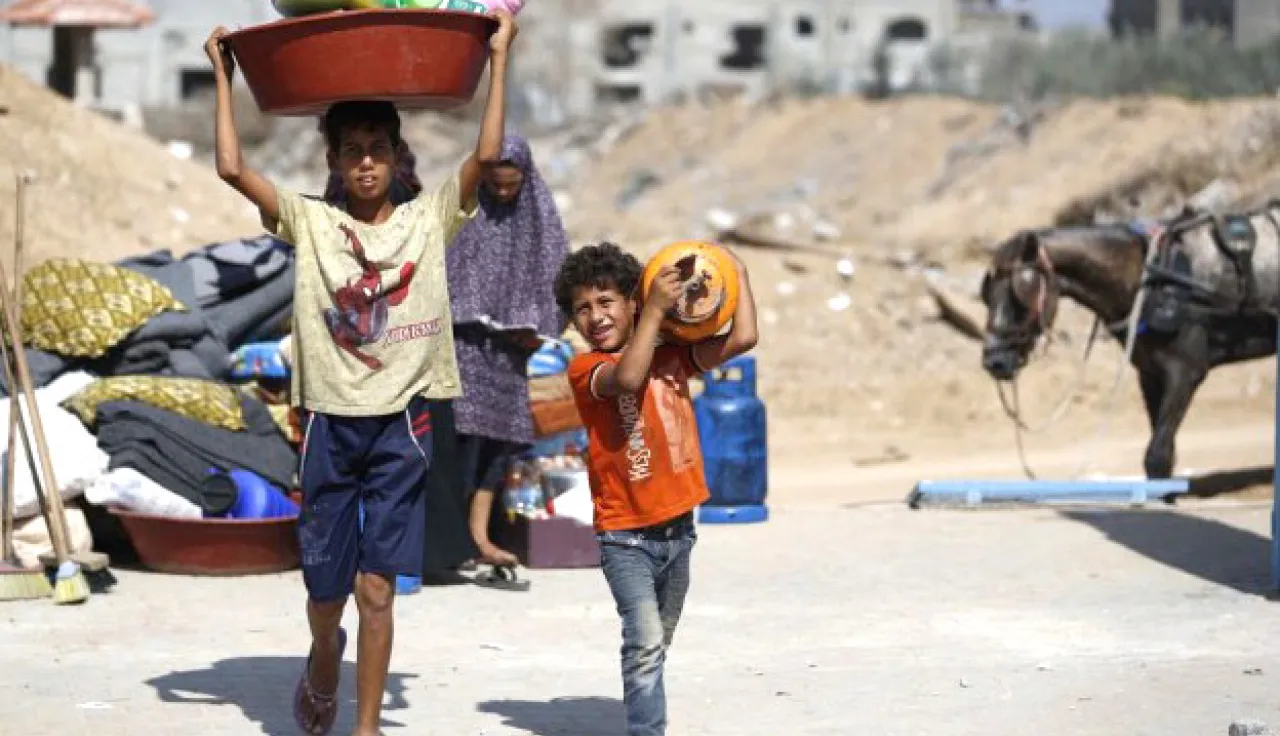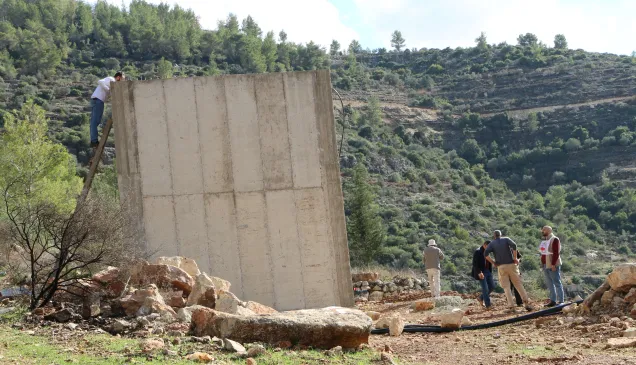Gaza: Priorities and challenges

As an open-ended cease fire promises relief from a 51-day conflict in Gaza, the ICRC and its partner, the Palestine Red Crescent Society (PRCS), are boosting their efforts to help those whose lives have been dramatically altered.
“We were on the ground throughout the crisis. In the coming weeks and months of recovery, we shall be intensifying our efforts, working in close collaboration with the PRCS,” said Christian Cardon, who heads the ICRC’s office in Gaza.
“But humanitarian aid can only do so much," he emphasized. "The parties to this conflict will have to address the underlying problems in any agreement they ultimately reach. As a humanitarian organization, we call for a sustainable recovery from this crisis.”
“We will also be engaging the parties with regard to their practices during this war. The extent of the suffering it caused was unacceptable, and lessons must be learned from this experience,” Mr Cardon added.
Boosting aid to meet urgent needs
It will take months or even years for many people to recover from this crisis and to rebuild a sustainable livelihood. Vital water and electricity infrastructure will also require long-term rebuilding programmes.
The ICRC and the PRCS are among several Red Cross and Red Crescent agencies providing humanitarian assistance in Gaza. However, as the full extent of the damage becomes better understood, humanitarian aid will need to be significantly scaled up in order to tackle the most pressing needs.
“The PRCS, with its ambulance stations, its medical centres and its hundreds of truly outstanding volunteers, has a vital role to play in the emergency recovery phase,” said Mr Cardon.
Priorities
- Get emergency aid to hundreds of thousands of people, so they can start supporting themselves again. The ICRC and the PRCS are focusing on some 150,000 people whose needs are the most urgent.
- Undertake major repairs to the water and electricity systems.
- Help restore essential medical services.
- Mitigate the risks posed by unexploded shells and other ammunition.
- Monitor the treatment of everyone who was detained during the conflict.
- Restore contact between separated family members.
- Recover bodies.
Working together
Throughout the hostilities, the ICRC and PRCS endeavoured to provide emergency care to thousands of people in the most affected areas of Gaza.
The two organizations carried out joint assessments to see what people needed and to provide them with emergency aid.
“We will continue to work with the PRCS, distributing aid to those in need,” said Mr Cardon. “We are currently expanding our capacity to increase the number of people we can help."
Ensuring commitment to the laws of war
Teams of experts have been in Gaza documenting and analysing the way the hostilities were conducted. The ICRC’s findings will be included in a confidential report that we will submit to the party concerned. Through confidential, bilateral dialogue, the ICRC will require the parties to take a serious and critical look at their actions and to ensure that stated commitments to comply with international humanitarian law (also known as the law of war) result in appropriate and concrete corrective and preventive action.
* * *
Water in Gaza: Priorities and challenges
Our teams are working with the municipal authorities to repair Gaza's water and sanitation services and its electricity system, all badly damaged by the conflict. But it will take years to fully restore this vital infrastructure, according to our regional expert Michael Talhami.
* * *
Health care in Gaza: Priorities and challenges
"If people don't have access to their hospitals, where are they meant to go?" asks Kirrily Clarke, our Hospital Project Manager in Gaza. Find out in this clip how we have been assisting the Gazan Ministry of Health and the Palestinian Red Crescent in recent weeks.



